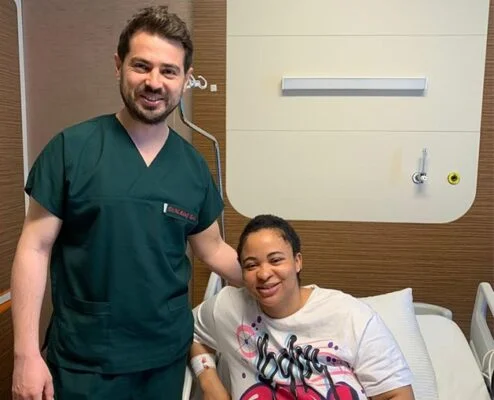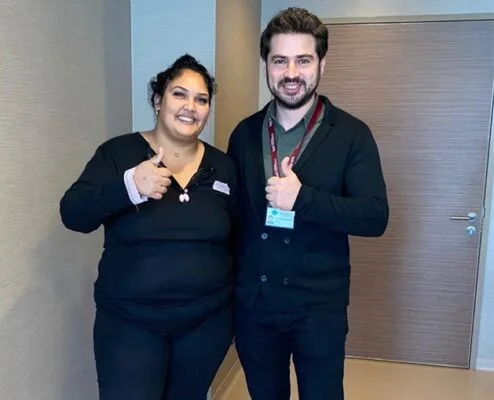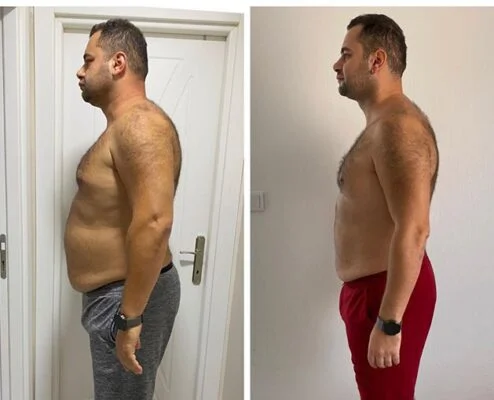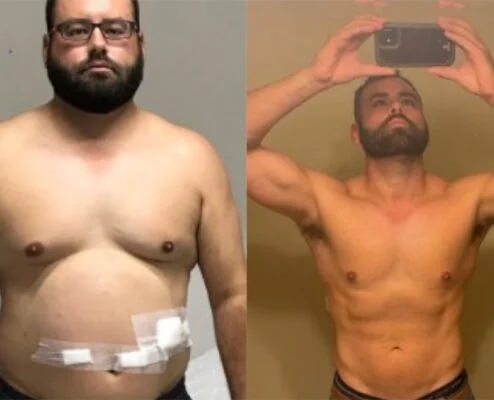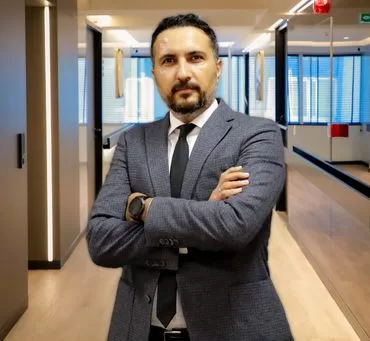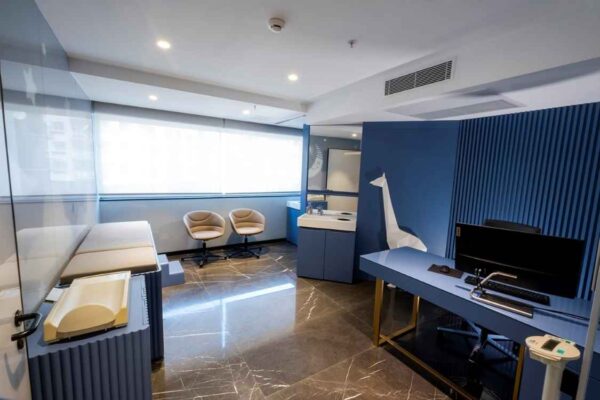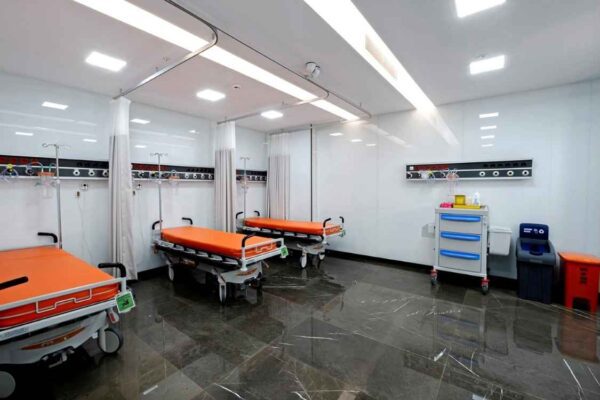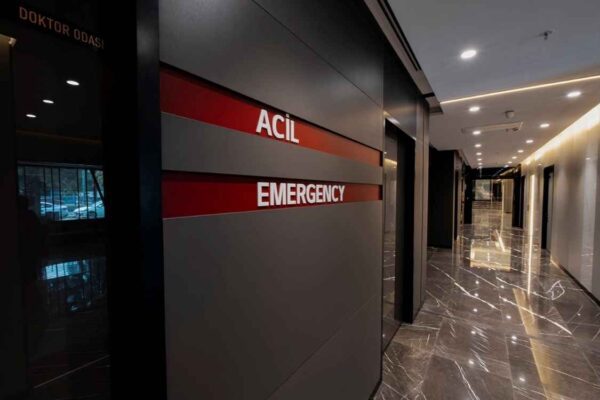The pervasive dilemma of corpulence plagues global public health, eliciting a myriad of concomitant maladies. An ascendant weight reduction method, gastric sleeve surgery—formally designated as sleeve gastrectomy—is a minimally invasive operation that excises part of the stomach, diminishing its dimensions and capacity.
What is Gastric Sleeve?
Gastric sleeve surgery entails the extraction of a substantial segment of the stomach, ultimately leaving a minuscule tubular stomach roughly analogous to a banana in size. This engenders a decrement in consumable food before satiation arises, thereby promoting weight reduction.
The intervention is typically advised for individuals possessing a body mass index (BMI) exceeding 40, or those with a BMI ranging from 35 to 39.9 and accompanying comorbidities like diabetes, hypertension, or sleep apnea.
How is Gastric Sleeve Performed?
- Preparation: The patient receives general anesthesia and assumes a position on the operating table. The surgical team sanitizes the operative site and creates several diminutive incisions in the abdomen.
- Laparoscopy: The surgeon introduces a laparoscope—a slender tube bearing a camera—into one of the incisions, facilitating visualization of the abdominal cavity and guidance of surgical instruments.
- Stomach Dissection: The surgeon meticulously dissects the stomach, excising approximately 80% of its volume with surgical staplers. The residual stomach assumes a protracted, slender tubular form, approximating a banana’s size.
- Closure: Employing surgical staples, the surgeon seals the incisions made within the stomach, fastening the margins of the extant stomach tissue.
- Recuperation: Post-procedure, the patient undergoes observation in the recovery room for several hours. Ordinarily, patients return home the subsequent day.
- Post-operative Regimen: Following the surgery, adherence to a stringent diet and exercise regimen is paramount for attaining and sustaining weight loss objectives. The patient commences a liquid diet during the initial weeks post-operation, transitioning to pureed and soft foods, and ultimately solid foods. Certain foods and beverages, such as sugar-laden drinks, must be eschewed to circumvent complications. The surgeon might also advocate vitamin and mineral supplements to ensure sufficient nutrient intake.
- Follow-up: Patients will attend multiple follow-up consultations with their surgeon to track their progress, tackle complications, and modify their treatment strategy as required. In specific cases, supplementary procedures, like skin excision surgery after substantial weight reduction, may be necessitated.What should be considered after Gastric Sleeve Surgery?
After undergoing gastric sleeve surgery, there are several important considerations for a successful recovery and long-term results. Here are some key points to keep in mind:
- Follow the post-operative instructions provided by your surgeon carefully. This may include dietary guidelines, medication usage, and activity restrictions.
- Adhere to a specialized diet plan recommended by your healthcare team. This typically involves consuming small, frequent meals that are high in protein and low in fat and sugar.
- Stay hydrated by drinking enough fluids throughout the day, but avoid drinking with meals to prevent discomfort.
- Engage in regular physical activity as advised by your healthcare provider to support weight loss and overall health.
- Take any prescribed vitamins and supplements to prevent nutritional deficiencies.
- Attend follow-up appointments to monitor your progress, receive support, and address any concerns.
- Be mindful of potential complications, such as leaks or strictures, and report any symptoms to your healthcare team.
- Seek support from a registered dietitian or support group to navigate dietary changes and make healthy lifestyle choices.
- Embrace a gradual and sustainable weight loss approach, understanding that the process takes time.
- Maintain open and ongoing communication with your healthcare team for guidance, monitoring, and long-term support.
FAQs
The payment plan options for gastric sleeve surgery in Turkey may vary depending on the hospital or clinic. Generally, they accept various payment methods such as credit cards, bank transfers, and cash payments. It is recommended to contact the specific facility to inquire about their available payment options and plans.
No, gastric sleeve surgery is typically not covered by insurance. While some insurance plans may provide coverage for weight loss surgeries, they often have strict criteria and requirements that must be met before approval. It is important to check with your insurance provider to understand the specific coverage and criteria for weight loss surgeries.
Gastric sleeve surgery is often cheaper in Turkey due to a combination of factors. These include lower operating costs, favorable exchange rates, and government incentives to promote medical tourism. The cost savings don’t compromise the quality of care, as Turkey has well-established medical facilities and experienced surgeons.
No, financing options for gastric sleeve procedures are not available. You would need to explore alternative payment methods or seek out healthcare providers who offer payment plans. It’s important to consult with a medical professional and discuss all available options to determine the best course of action for your specific situation.
In Turkey, the age limit for gastric sleeve surgery may vary depending on the medical facility and the individual’s health condition. Generally, individuals between the ages of 18 and 65 are eligible for the procedure. However, it is important to consult with a qualified surgeon who can assess your specific situation and provide appropriate guidance.
The success rate of gastric sleeve surgery is generally high, with a low risk of complications. However, like any surgical procedure, there are potential risks involved, such as bleeding, infection, or complications related to anesthesia. The specific chances of something going wrong vary depending on individual factors and the expertise of the surgical team. It is essential to consult with a qualified healthcare professional for a personalized evaluation.
Gastric sleeve surgery, like any surgical procedure, carries risks. Potential complications include infection, bleeding, leaks, blood clots, and gastrointestinal issues. Some patients may experience long-term effects such as vitamin deficiencies or gastroesophageal reflux disease. Proper preoperative evaluation, postoperative care, and following dietary guidelines can help minimize these risks. Consult a healthcare professional for personalized advice.
Gastric Sleeve Before – After
Our Team
Our Hospital
Atilla, Halide Edip Adıvar St.
No:57, 35270 Konak/İzmir



